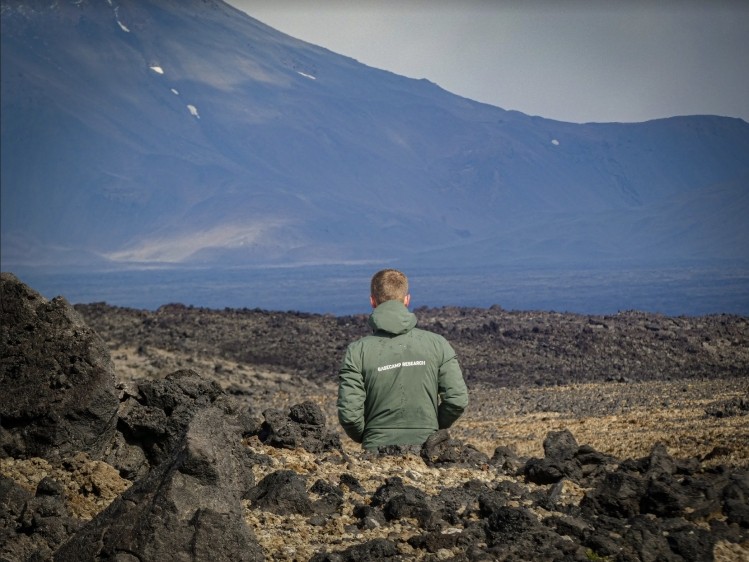Basecamp Research raises $20M to map life on earth and design proteins to match

“Less than one percent of the biochemistries in nature have been discovered – a fraction of that percentage has been fully characterized in the real world,” said Oliver Vince, co-founder at Basecamp Research. “Recent advances in bioinformatics, AI and data science are enabling our team to map a world of untapped possibility, and we’re just getting started.”
The capital will be used to continue to build a bridge between biodiversity and biotech by feeding “the largest global knowledge graph of life on earth” to inform the design of bioengineered protein products across pharmaceutical, nutrition, agriculture and consumer goods industries.
Just getting started: Basecamp beginnings
Basecamp Research was founded in 2019 after Vince and co-founder Glen Gowers ventured off on a sequencing expedition to a remote icecap in Iceland, armed with a love of the outdoors and PhDs in synthetic biology and bioengineering. There, they realized that nature may already have many of the solutions that biotech is looking for but that they just needed to invest in the exploration and the tools to find them.
“We both spent a lot of time trying to improve enzymes using the latest protein engineering techniques,” Gowers said, acknowledging that AI-based protein design has been fundamentally limited by the datasets available. “It then turned out that a better version of the enzymes we were looking for already existed in nature.”
That first expedition has since grown into a team of Antarctic ice divers, machine learning graph scientists, protein advisors and biodiversity liaisons, all working to advance an ever-expanding knowledge base on proteins and the properties of their native habitats. The latest round of funding, which brings the total to $30 million, will be used for hiring, validation of internal products and developing the product portfolio.
Building the global knowledge graph
In less than three years, the Basecamp team has collected 1,000 samples across 65 expeditions from Antarctica to the Azores, covering 45% of the earth’s biomes and increasing the number of proteins known to science by 50%.
“We have some 60-year-old Antarctic samples, we sampled contaminated mine sites, we have every kind of hot spring, some very inaccessible marine sites, dust from the Sahara that carried to London and samples from the sewage nearby,” Gowers told NutraIngredients-USA.
“We know exactly where in the world to find bottleneck enzymes,” Vince added, noting that locations are confidential. “That said, we have hiked several days to get to sample locations, we have sledded a mobile lab across an icecap, and we have sent divers to collect samples from the bottom of the ocean.”
Samples are ethically collected in compliance with the Nagoya Protocol, and biodiversity partners including local landowners, national parks and national governments receive a share of company revenue from the finds.
Designing ‘proteins using nature's hidden rules’
Along with the metagenomic sample, Basecamp expeditions gather hundreds of geological and geochemical metadata points on site to be able to map relationships between protein classes and their environmental function.
“This lets us solve the next holy grail in computational biology: in silico prediction of how proteins behave in the real world,” said Vince. “The breadth of our dataset means that our AI models can use these diverse starting points to generate proteins that meet industrial specifications.”
The protein code database – which Gowers says “represents true protein diversity, way more than existing public databases” – is used to train a proprietary stack of graph learning algorithms to predict function without relying on sequence similarity. So far, the company has discovered over 700 million AI-derived relationships from the samples collected, all in the name of helping companies develop “market-leading proteins using nature’s hidden rules” while preserving the world’s resources.
‘We still have a chance’
“Scaling the bioeconomy is a critical lever for unlocking efficient, local and net zero manufacturing of chemicals, materials, foods and pharmaceuticals,” said George Darrah, principal at Systemiq Capital, following the funding announcement. “This is a multi-trillion-dollar disruption opportunity. We are excited by the Basecamp team, and the mission at the heart of accelerating our transition to net zero and restoring biodiversity.”
In the nutraceutical space, Basecamp sees significant opportunities for the sustainable manufacturing of proteins.
“Many existing nutraceuticals are produced through extraction from plants that cannot be farmed in a sustainable manner or from petrochemical-based ingredients,” Vince said. “The novel enzymes that we’re designing could enable these valuable ingredients to be manufactured from more sustainable input materials such as common crops or waste products from agricultural or industrial processes.”
He won’t publicly disclose where the next expedition will take them but does say that the team will go out looking for certain protein classes based on customer specifications.
Asked to describe the biodiversity encountered on these expeditions, Gowers said: “Wonderfully diverse and unexplored. It’s incredible to think that nature has evolved over 4 billion years and yet we have recorded only a tiny fraction of this wealth of natural knowledge. If we protect our biodiversity now, then we still have a chance to find the answers to our most pressing problems.”







